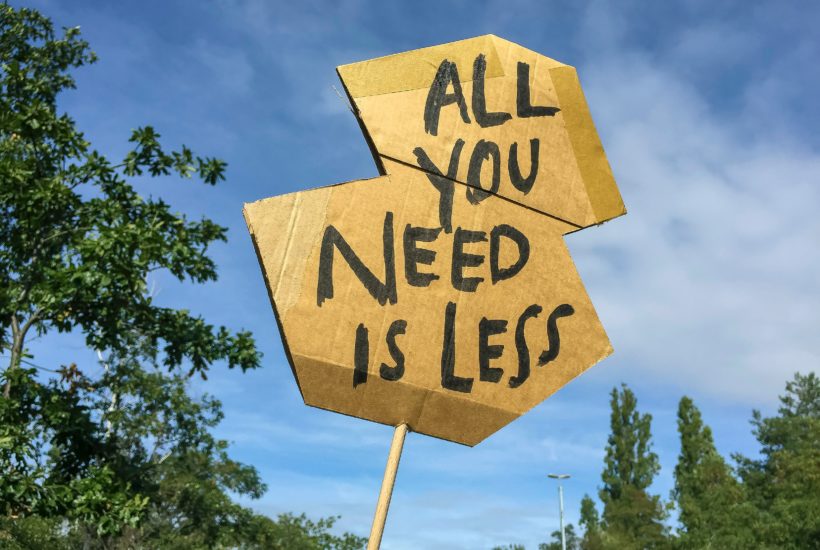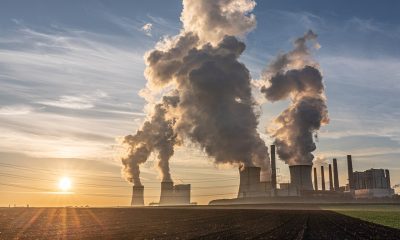Featured
Carbon Emissions: the Levy Under the Paris Agreements
68% of Argentine business people surveyed in PwC’s 24th Annual Global CEO Survey expressed concern about the threats associated with climate change and environmental damage, and 45% plan to increase their budget on ESG issues in the next 3 years. According to the IPCC, with each additional “quota” of global warming, the impacts will be greater.

According to the latest IPCC (Intergovernmental Panel on Climate Change) Report, published last August, unless greenhouse gas (GHG) emissions are reduced immediately and on a large scale, limiting warming to around 1.5°C or even 2°C will be an unattainable goal.
As PwC‘s Net Zero Economy Index 2020 releases, the current decarbonization rate is well below the expected within what is needed to achieve the Paris Agreement target: while the annual decarbonization rates needed to limit warming to 2°C and 1.5°C are estimated at 7.7% and 11.7% respectively, only 2.4% was achieved during 2019.
Belén Zermatten, ESG & Sustainability Manager at PwC Argentina, commented: “The decarbonization goals are supported by leading companies around the world, which have made public commitments to achieve greenhouse gas reductions, and have undertaken and in many cases strengthened the development of clean technologies.
However, beyond these important global milestones, the gap between ambition and action remains substantial. Building a low-emissions economic model will require further deepening these efforts and it will be critical for business leaders to lead the transformation by rethinking their corporate strategy with clear targets for emissions reduction, integrating it across the organization, and implementing it in all operations (including the value chain as a key player in the process).”
According to the IPCC, with each additional “quota” of global warming, the impacts will be greater, and extreme events of greater intensity and frequency are expected.
Regarding the effects of the COVID-19 pandemic, both the PwC Report and the IPCC agree that decarbonization since the appearance of the virus occurred largely during the first half of 2020 due to the decrease in economic activity when mandatory insulation deepened globally; but a rapid rebound in emissions has been observed as economies and societies began to resume their activities.
Read more on the subject and find the latest business headlines with the born2Invest mobile app.
Situation in Argentina
In 2020, the country has submitted its second NDC (Nationally Determined Contribution), which includes three main components:
Commitment to limit GHG (greenhouse gas) emissions by 26% with respect to the first NDC (2016).
Present a long-term low-emission development strategy, with the goal of achieving carbon-neutral development by 2050.
Reaffirm the commitment to work on climate change mitigation and adaptation measures, starting with the development of a National Adaptation and Mitigation Plan.
Diego López, partner of PwC Argentina, stated, “the public and private sectors and civil society as a whole, we must work hard and in a coordinated manner to achieve the transformations required to meet the objectives of the Paris Agreement. In this sense, at PwC we work day by day with clients, suppliers, and collaborators to measure and manage the impact of our activities on the environment, committed to reducing our greenhouse gas emissions by 50% by 2030”.
68% of Argentine businesspeople surveyed in PwC’s 24th Annual Global CEO Survey expressed concern about the threats associated with climate change and environmental damage, and 45% plan to increase their budget on ESG (environmental, social, and corporate governance) issues in the next 3 years.
Rocío Martínez, from PwC Argentina’s Sustainability team, concluded, “achieving these objectives will require the adoption of sustainable production and consumption practices. According to what is established in this second NDC, it will be a priority to focus on reducing vulnerability, increasing adaptive capacity, and strengthening the resilience of the different social, economic and environmental sectors through awareness-raising and capacity-building measures that will allow the country and its population to respond to the urgent challenge of protecting the planet.
__
(Featured image by Etienne Girardet via Unsplash)
DISCLAIMER: This article was written by a third party contributor and does not reflect the opinion of Born2Invest, its management, staff or its associates. Please review our disclaimer for more information.
This article may include forward-looking statements. These forward-looking statements generally are identified by the words “believe,” “project,” “estimate,” “become,” “plan,” “will,” and similar expressions. These forward-looking statements involve known and unknown risks as well as uncertainties, including those discussed in the following cautionary statements and elsewhere in this article and on this site. Although the Company may believe that its expectations are based on reasonable assumptions, the actual results that the Company may achieve may differ materially from any forward-looking statements, which reflect the opinions of the management of the Company only as of the date hereof. Additionally, please make sure to read these important disclosures.
First published in Mercado, a third-party contributor translated and adapted the article from the original. In case of discrepancy, the original will prevail.
Although we made reasonable efforts to provide accurate translations, some parts may be incorrect. Born2Invest assumes no responsibility for errors, omissions or ambiguities in the translations provided on this website. Any person or entity relying on translated content does so at their own risk. Born2Invest is not responsible for losses caused by such reliance on the accuracy or reliability of translated information. If you wish to report an error or inaccuracy in the translation, we encourage you to contact us.

-

 Crowdfunding3 days ago
Crowdfunding3 days agoPMG Empowers Italian SMEs with Performance Marketing and Investor-Friendly Crowdfunding
-

 Fintech2 weeks ago
Fintech2 weeks agoRobinhood Expands to Europe with Tokenized Stocks and Perpetual Futures
-

 Markets5 days ago
Markets5 days agoThe Big Beautiful Bill: Market Highs Mask Debt and Divergence
-

 Crowdfunding2 weeks ago
Crowdfunding2 weeks agoTasty Life Raises €700,000 to Expand Pedol Brand and Launch Food-Tech Innovation

























